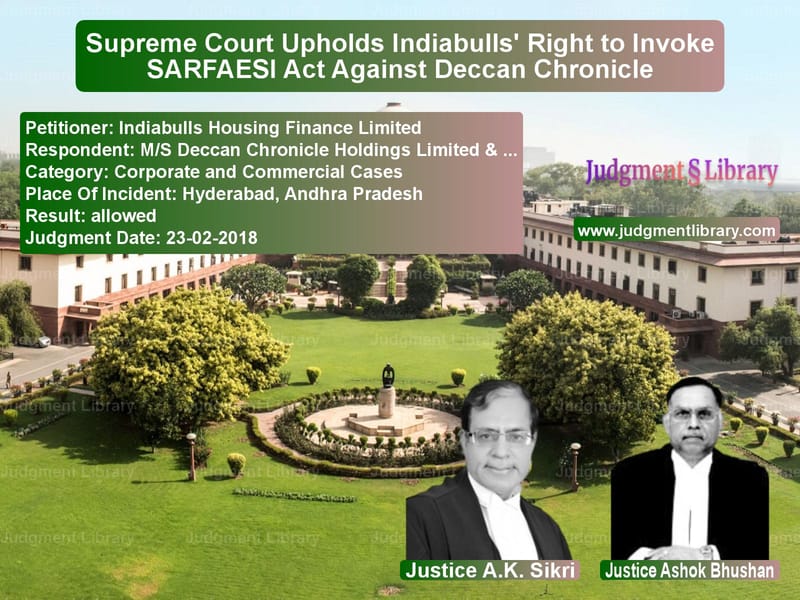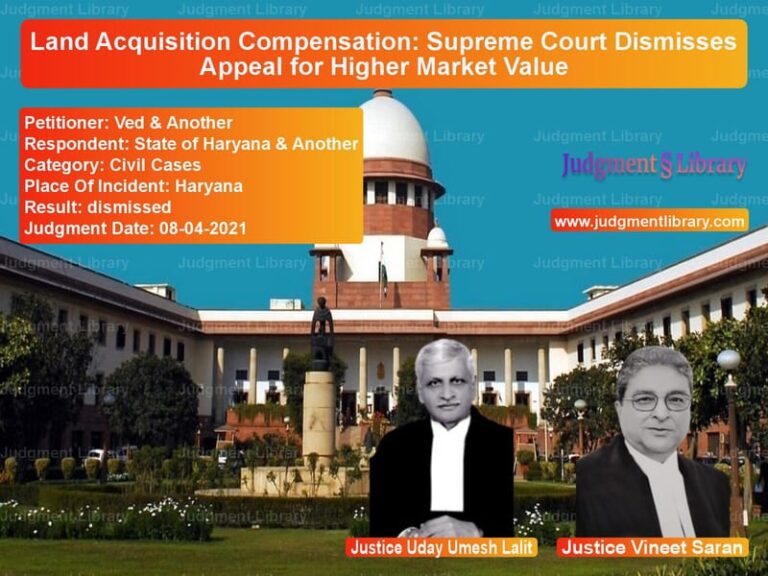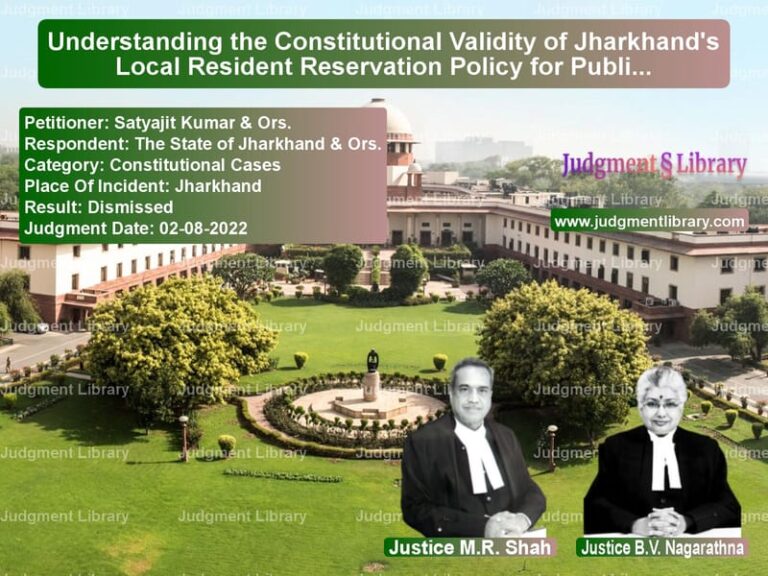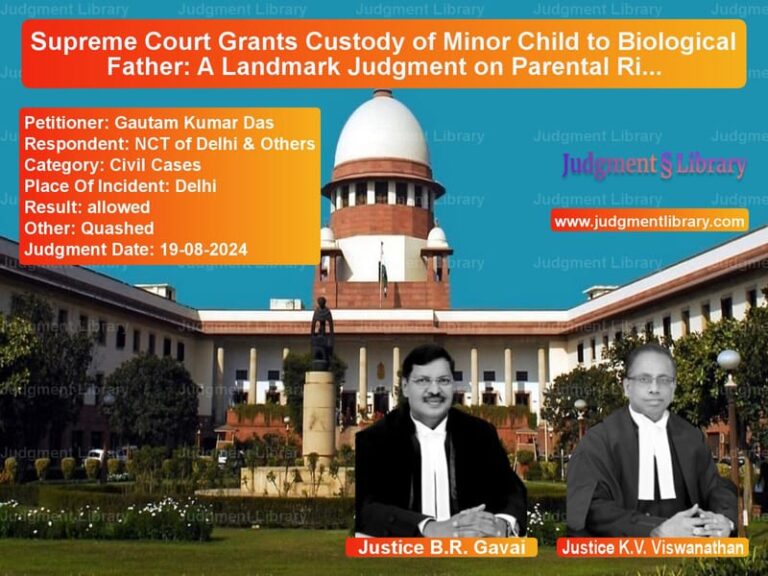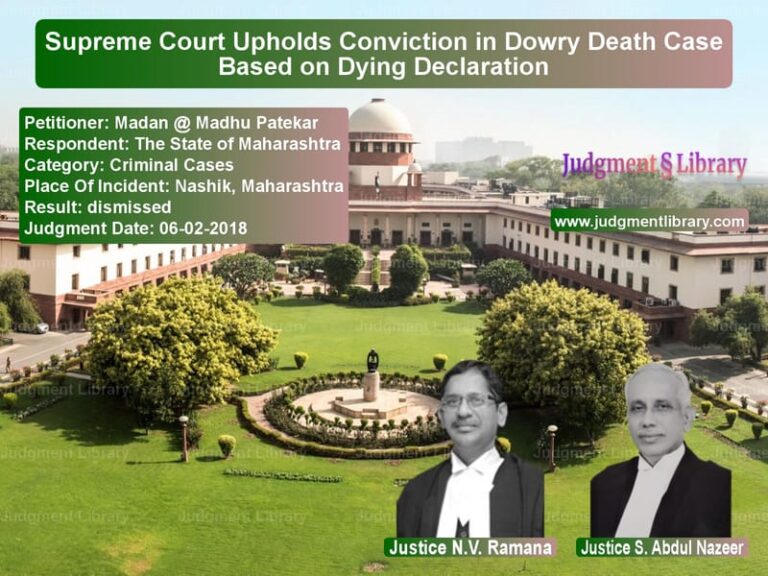Supreme Court Upholds Indiabulls’ Right to Invoke SARFAESI Act Against Deccan Chronicle
The Supreme Court of India recently delivered a significant judgment in the case of Indiabulls Housing Finance Limited vs. M/S Deccan Chronicle Holdings Limited & Others. The Court ruled in favor of Indiabulls, allowing it to invoke the Securitisation and Reconstruction of Financial Assets and Enforcement of Security Interest (SARFAESI) Act, 2002 to recover outstanding debts from Deccan Chronicle Holdings Limited (DCHL). The case revolved around the legality of Indiabulls’ actions following a corporate merger and the applicability of the SARFAESI Act to loans originally issued by a non-SARFAESI-eligible financial institution.
Background of the Case
In 2011 and 2012, Indiabulls Financial Services Limited (IBFSL) extended loans of Rs. 100 crores (Rs. 50 crores each in two tranches) to Deccan Chronicle Holdings Limited. The loans were secured by mortgages on properties owned by DCHL. Subsequently, IBFSL merged with Indiabulls Housing Finance Limited (IHFL), a financial institution covered under the SARFAESI Act.
Following the merger, Indiabulls initiated proceedings under the SARFAESI Act to recover outstanding dues from DCHL. However, DCHL challenged these proceedings in the Andhra Pradesh High Court, arguing that since IBFSL (the original lender) was not covered under SARFAESI when the loan was issued, Indiabulls could not retroactively apply the Act post-merger.
High Court’s Decision
The Andhra Pradesh High Court ruled in favor of DCHL, holding that:
- Since IBFSL was not covered under SARFAESI at the time of granting the loan, it had no right to invoke SARFAESI provisions.
- Indiabulls, as the successor of IBFSL, could not invoke SARFAESI either, as allowing this would retroactively impose new legal obligations on DCHL.
- The merger did not alter DCHL’s rights under the Transfer of Property Act, 1882, which governed the original loan agreements.
Supreme Court’s Judgment
Indiabulls appealed the High Court’s decision, and the Supreme Court, in its ruling delivered by a bench comprising Justice A.K. Sikri and Justice Ashok Bhushan, set aside the High Court’s judgment. The Supreme Court made several key observations:
1. SARFAESI Act Applies Retroactively
The Court held that the SARFAESI Act applies to all debts that remain outstanding at the time the lender becomes a SARFAESI-covered entity. The Court stated:
“The SARFAESI Act is intended to provide an expeditious mechanism for debt recovery. It applies retroactively to all existing debts when a lender comes under its purview, ensuring that financial institutions can enforce security interests efficiently.”
2. Corporate Merger Does Not Negate Lender Rights
The Supreme Court rejected the argument that the merger altered Indiabulls’ rights. It ruled that post-merger, Indiabulls legally inherited all assets, liabilities, and rights of IBFSL, including its claims against DCHL. The judgment cited:
“On sanction of the scheme of amalgamation, all loans, recoveries, security, interest, and financial documents in favor of IBFSL got transferred to Indiabulls. The borrower (DCHL) cannot claim that its obligations remain static while the lender undergoes corporate restructuring.”
3. SARFAESI Provides a Special Mechanism for Recovery
The Court reaffirmed that the SARFAESI Act is a special law enacted to facilitate swift debt recovery. It overrides general laws, including the Transfer of Property Act, in cases where financial institutions seek to enforce secured debts.
4. No Consent Required from Borrowers
The Court dismissed DCHL’s argument that the merger required borrower consent for SARFAESI applicability, stating:
“Debt assignment and corporate mergers are legal transactions that do not require borrower approval unless explicitly provided in the contract. Borrowers cannot escape liability merely because their lender undergoes a corporate transition.”
Conclusion
The Supreme Court’s judgment sets a precedent for financial institutions using SARFAESI post-merger to recover outstanding loans. The ruling clarifies that:
- Loans originally issued by non-SARFAESI entities can be enforced under SARFAESI if the lender subsequently becomes eligible.
- Borrowers cannot use corporate restructuring as a defense against debt recovery.
- The SARFAESI Act prevails over general property laws when financial institutions exercise their recovery rights.
This decision strengthens the financial sector by ensuring that lenders can enforce secured debts efficiently, thereby reducing non-performing assets (NPAs) and maintaining economic stability.
Petitioner Name: Indiabulls Housing Finance LimitedRespondent Name: M/S Deccan Chronicle Holdings Limited & OthersJudgment By: Justice A.K. Sikri, Justice Ashok BhushanJudgment Date: 23-02-2018
Don’t miss out on the full details! Download the complete judgment in PDF format below and gain valuable insights instantly!
Download Judgment: Indiabulls Housing F vs MS Deccan Chronicle Supreme Court of India Judgment Dated 23-02-2018.pdf
Direct Downlaod Judgment: Direct downlaod this Judgment
See all petitions in Bankruptcy and Insolvency
See all petitions in Corporate Compliance
See all petitions in unfair trade practices
See all petitions in Judgment by A.K. Sikri
See all petitions in Judgment by Ashok Bhushan
See all petitions in allowed
See all petitions in supreme court of India judgments February 2018
See all petitions in 2018 judgments
See all posts in Corporate and Commercial Cases Category
See all allowed petitions in Corporate and Commercial Cases Category
See all Dismissed petitions in Corporate and Commercial Cases Category
See all partially allowed petitions in Corporate and Commercial Cases Category

